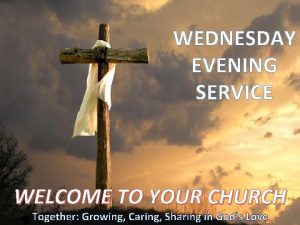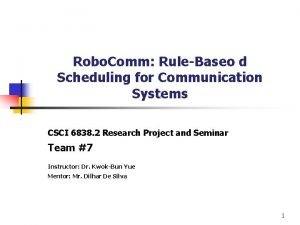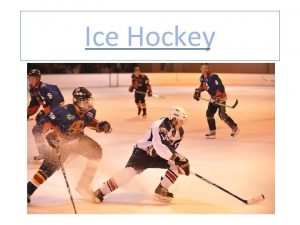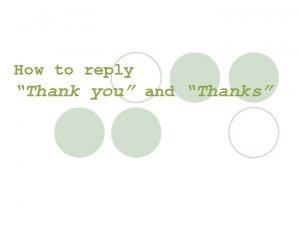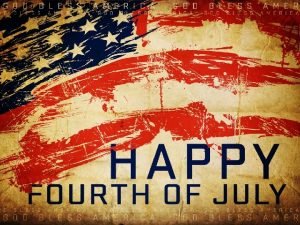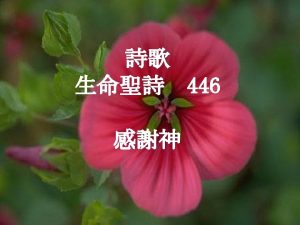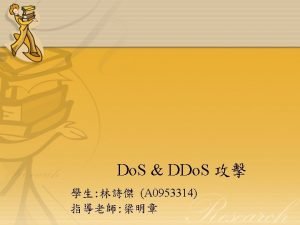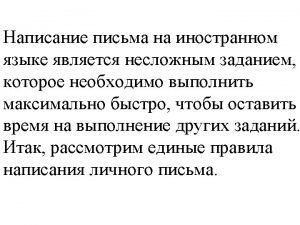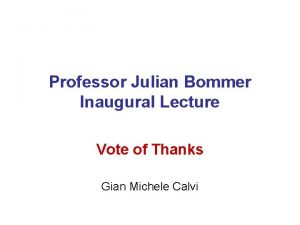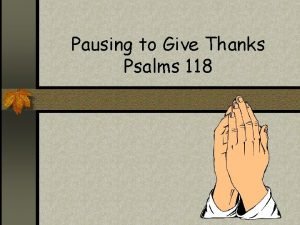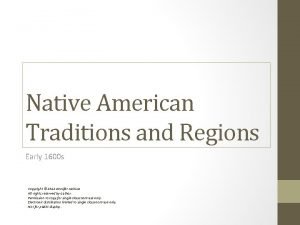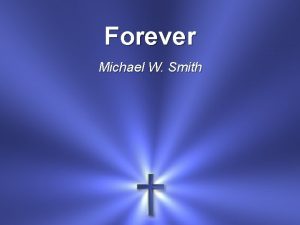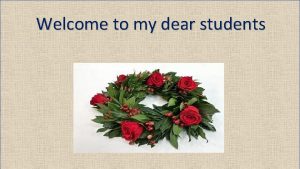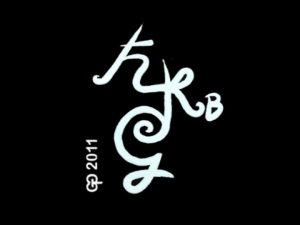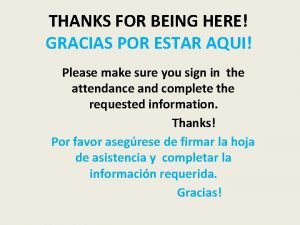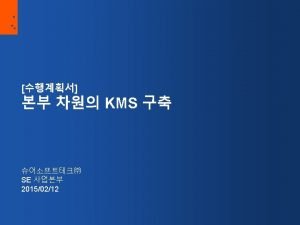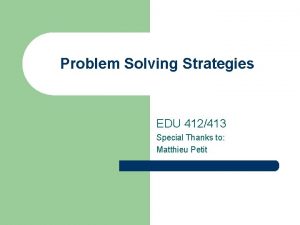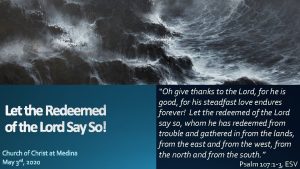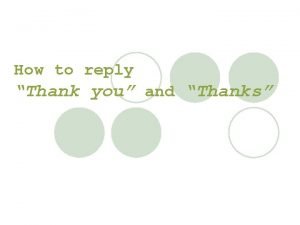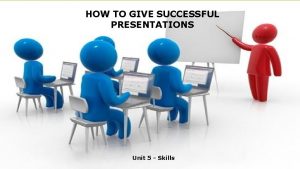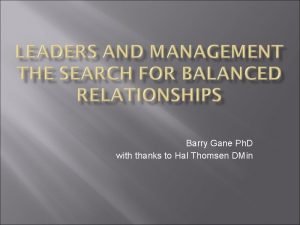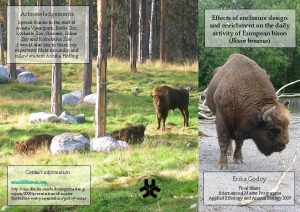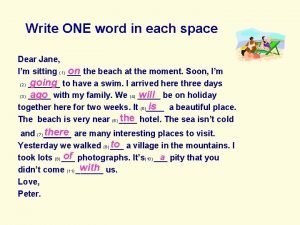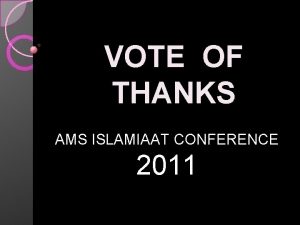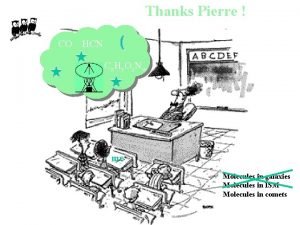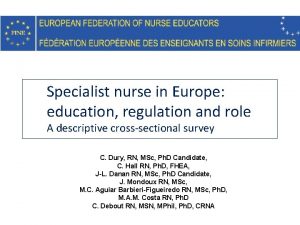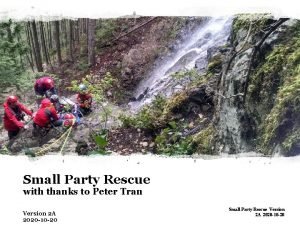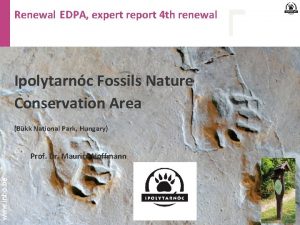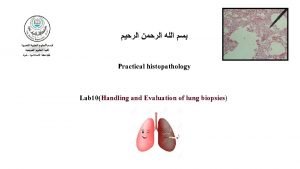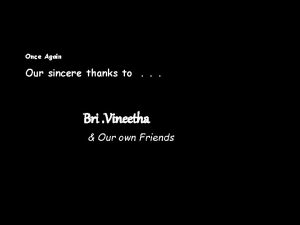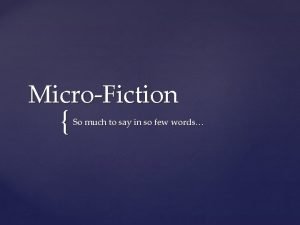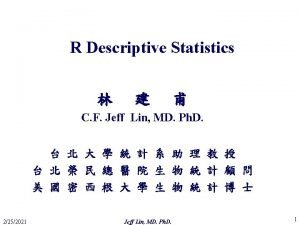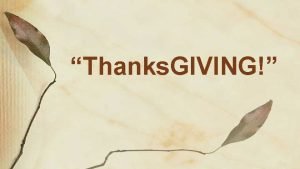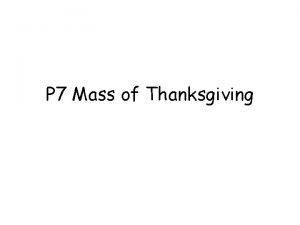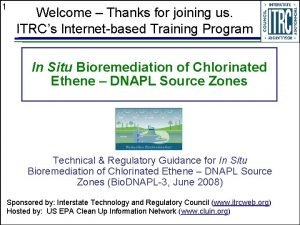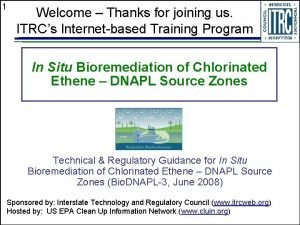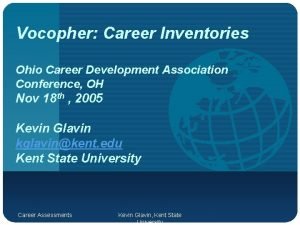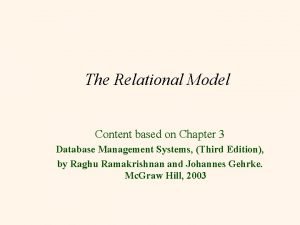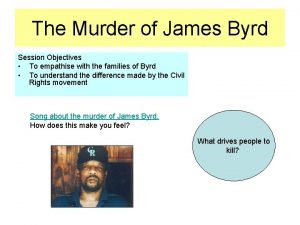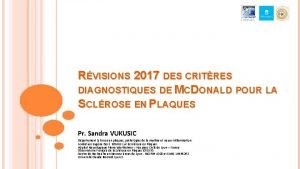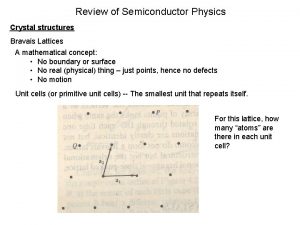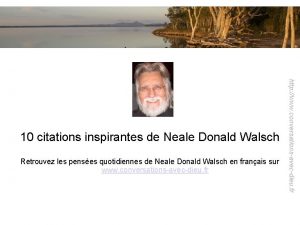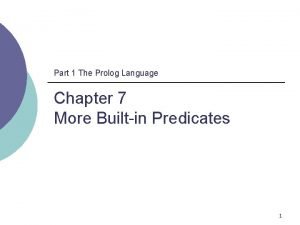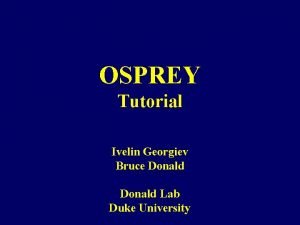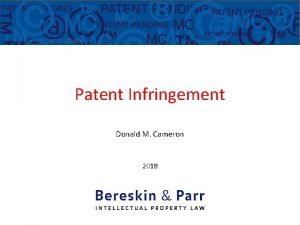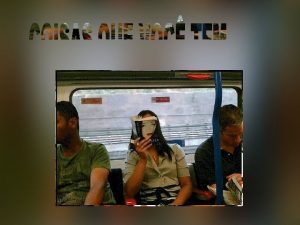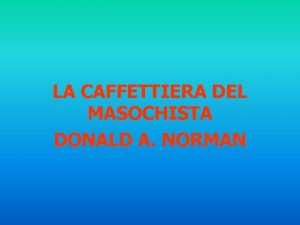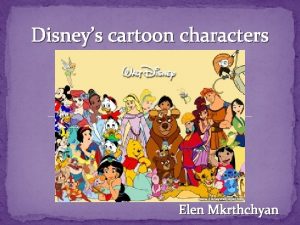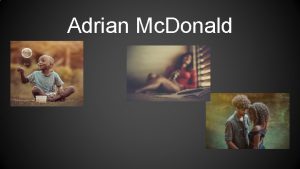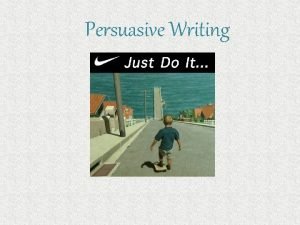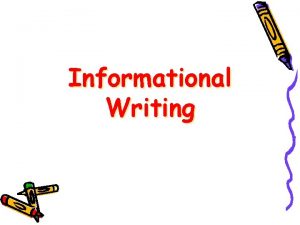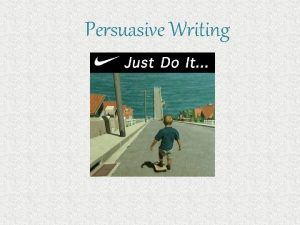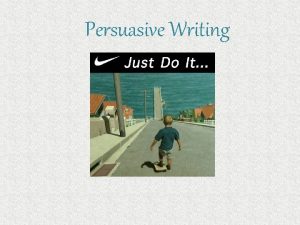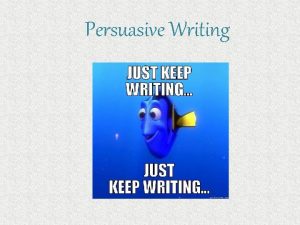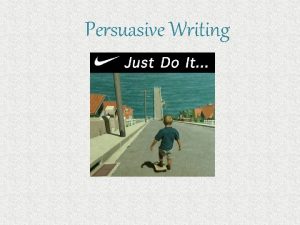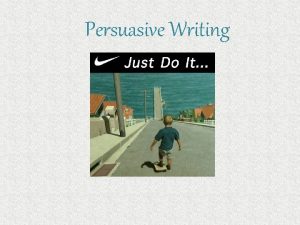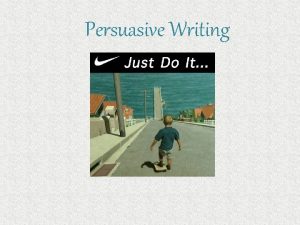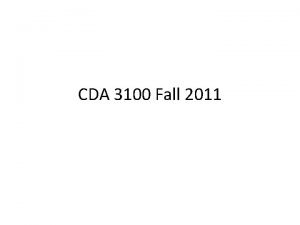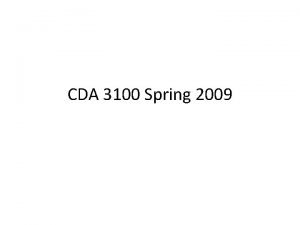S 3 Writing Unit Thanks to Mr Donald




































































- Slides: 68

S 3 Writing Unit Thanks to Mr Donald Campbell of Peterhead Academy Titanic

In S 3 creative writing you will: demonstrate your ability to independently construct a plot that is appropriate for the purpose and target audience, experiment with different types of punctuation and structure, create convincing characters and describe a setting effectively, review and edit your work so that meaning is clear at first reading.

In your jotter please write the heading: “Titanic” Writing Unit

Over the next few weeks: We will watch the film “Titanic”. You will complete exercises that improve your vocabulary, sentencing, paragraphing and use of tenses. Finally you will complete a piece of imaginative writing.

Focus 1 Vocabulary

Focus 1: using vocabulary to establish a character. Consider our first impression of the character Rose De Witt Bukater. Watch scene 8: 20. 15 - 21. 21

Focus 1: vocabulary continued. Take notes on everything you see using the following sub headings: Describe Rose’s face (appearance) Describe Rose’s clothes (attire) Describe Rose’s personality (demeanour ) (

In your story… When you describe your character use varied vocabulary to bring them to life for the reader.

Focus 2 Tenses

Focus 2: using the correct tense to share a story effectively with the reader. Tenses= the way we express time, such as present tense (now), past tense (time gone by) or future tense (time to come. )

Never change tenses half way through a story because you will confuse your reader.

Tenses: the verb to travel (simple regular verb) ‘To travel’ – this is called the infinitive part of the verb and = ‘to’ and the stem of the verb. Present tense of ‘to travel’ travels or is travelling A verb, as used in a sentence, consists of the stem (main part) and a suffix (s, ed, ing). e. g. He travels all over Scotland as part of his job. She is travelling to New York even as we speak.

Tenses continued… Past tense of ‘to travel’ travelled or was travelling e. g. She travelled with Ryan air. He was travelling by train when the accident happened. • Future tense of ‘to travel’ will travel or will be travelling e. g. We will travel to Alton Towers overnight. They will be travelling to Tenerife on Friday.

Tenses: your turn! Take the verb ‘to speak’. Work out what the present tense is in its two forms – remember ‘to travel’ - travels or is travelling Work out the past tense of ‘to jump’ Remember: travelled or she was travelling Now work out the past tense of ‘to pick. ’

Using the correct tense

Consider the first time Jack and Rose meet. In present tense note down: What does Jack see? What does Jack do? Watch scene 14: 35. 27 - 42. 59 What does Jack say?

Now in past tense: Imagine that you are Jack. Write a paragraph telling your Irish friend what happened. You MUST write in past tense!

Focus 3 Sentence structures

Revision of sentence structures: Simple sentence Compound sentence Complex sentence

Simple sentence I like watching action films. Subject + verb = simple sentence

Compound sentences These can join simple sentences together using conjunctions. I like watching action films. I find watching zombie films scary.

Creating a compound sentence: Which conjunction would you use? I like watching action films but I find watching zombie films scary.

You can simplify this compound sentence further: I like watching action films but I find watching zombie films scary. “Like action films” and “find zombie films scary” are additional components linked to the predicate verb “watching”.

Conjunctions The most common conjunctions are: and, so, but, because, or, as. BEWARE! The conjunctions you use can change the meaning of your sentence.

Conjunctions continued… I walked home. I was tired. I walked home and I was tired. I walked home as I was tired. I walked home but I was tired. I walked home so I was tired.

Compound sentences Commas are not conjunctions and they should never be used to join short sentences together.

Revision of compound sentences Remember - when you make a compound sentence you are joining two or more simple sentences together with a If you took the conjunction away, the sentences would be complete and they would still make sense. conjunction.

Complex sentences don't just divide into neat, complete, simple sentences if you take out the conjunctions. In complex sentences the conjunction is used to join together clauses. A clause is a group of words that contains a subject and a verb. Some of these clauses might be complete short sentences, but in a complex sentence at least one of them will depend on the conjunction for its meaning.

Complex sentence 'The dinner was burned because he had forgotten it. ‘ = 'The dinner was burned' + 'because he had forgotten it. ' This is a complex sentence.

The important joining words: For both compound and complex sentences, you need a good selection of conjunctions, or joining words. We all went home before a fight broke out. She went to bed after she put the cat out. The 'magnificent seven' conjunctions (the most commonly used) are: There will be no peace untilas, somebody says that and, although, because, but, if, they or are sorry. It has not been the same around here since our friends moved away. There a number of other important conjunctions that you can use. These can put be put categories time, the place, or agreement. They theinto television offof when programme had finished. He washes new since, car whenever it gets mucky. TIME =before, after, his until, whenever, while

Conjunctions to indicate place. PLACE =where Remember! For example 1. Remember Try to avoid using the same over that restaurant where you conjunction ate a huge steak. and over again. It is much better to 'mix and match'. AGREEMENT =though, although, whether For example 2. The conjunction you use can change the He could play the violin though he was only five years old. meaning sentence. You can't use every I will invite of you the to come in although the place is a mess. It was a great show whether you wanted to join in orwisely. just watch. conjunction everywhere - so choose

Although I’m not very good, I really enjoy playing football. = 'Although' + 'I'm not very good' + 'I really enjoy playing football. ' Again, this is a complex sentence: 'Although' = conjunction (joining word). Yes, sometimes conjunctions can appear at the beginning of a sentence! 'I'm not very good' = subordinate clause. 'I enjoy playing football' = complete short sentence.

As for compound sentences, commas are not conjunctions and they should never be used to join short sentences or clauses together. e. g. 'The homework was undone, she had forgotten it. ' = Discuss with the person beside you why this is incorrect and suggest a conjunction which could join the clauses.

In pairs try and identifying the main and subordinate clause. 1) Jessica has a baby dwarf rabbit. 2) Looking through binoculars, I glimpsed the cruiser on the horizon. 3) As the train slowed, I collected together all my luggage. 4) Chemistry is my favourite subject because it is interesting. 5) I wandered lonely as a cloud that floats on high o’er vales and hills. (Wordsworth- famous poet from 19 th century) 6) World-famous movie star, Brad Pitt, has separated from his wife.

Answers: ( Main clause only ) 1) Jessica has a baby dwarf rabbit. 2) Looking through binoculars, clause) 3) As the train slowed, 4) Chemistry is my favourite subject 5) I wandered lonely as a cloud that floats on high o’er vales and hills. Clause) (Wordsworth- famous poet from 19 th century) 6) World-famous movie star, (Subordinate Clause) I glimpsed the cruiser on the horizon. I collected together all my luggage. (Main clause) because it is interesting. (Main clause) (Subordinate Clause) (Main Brad Pitt has separated from his wife. (Subordinate (Main clause)

S 3 Writing Unit Thanks to Mr Donald Campbell of Peterhead Academy Titanic You are going to write a story imagining that you are a passenger on the Titanic.

In S 3 creative writing you will: demonstrate your ability to independently construct a plot that is appropriate for the purpose and target audience, experiment with different types of punctuation and structure, create convincing characters and describe a setting effectively, review and edit your work so that meaning is clear at first reading.

Planning You can choose to be a first or third class passenger. You must describe your first sight of the ship, a meal or a party on the ship and the night of the sinking.

REMEMBER, the ship was at sail for four days before the disaster. You will be writing your story until the ship shudders at around 11. 40 pm on April 14 th, 1912. For next lesson, begin to think about where you were when the ship hit the iceberg?

Information about the ship and the journey.

Costs on Titanic The lowest fare for third-class passage was approximately $36. 25 one way for a single person willing to share a cabin. In today’s money that is £ 390. 87!

Voyage Queenstown in Ireland was reached by 11. 30 the next day. No first class passengers boarded in Ireland. Left Southampton April 10 th 1912 at 12 noon. Next stop was Cherbourg, in France, 70 miles away. Passengers were transported in tenders.

You will begin your story with a description of your first sight of the ship. First class Entered through a terminal building onto the gangplank. They may have arrived, like Rose did, in a motor car. Third class Had to go along the pier. They were checked by a doctor before being allowed to board the ship.

Arrival Many Third class passengers stayed at the Atlantic Hotel, known as the Emigrants' House Other Third class passengers would have travelled by train to get to Southampton. A special ‘boat’s train’ left London’s Waterloo station bound for Southampton. First class passengers would have probably travelled by motor car or stayed at the old Southwestern Hotel. Titanic left from the White Star Dock.

Arrival Imagine what it would have been like to see Titanic for the first time. It would have been towering over the buildings from a distance. Have you created a detailed description of your first sight of Titanic?

Pupil example 1: I loved seeing the true amazement on my brother’s face as the car pulled up. We were leaving England; my brother would finally be able to walk again! It was strange, only six weeks before we had been living in a shack with hardly enough food to feed ourselves. Now we were about to board the most majestic ship that had ever been built. It was hard to take in. My dead Uncle James’ fortune really helped us. So before I knew it I was on an adventure at only nineteen years of age.

Pupil example 2 I stepped off Titanic’s train that had run myself and hundreds of others from London to Southampton. This was my moment. I’d been dreaming of this day for months and now here I was. My first impressions were of the sheer size of it- it must have been hundreds of metres in length. The black and cream hull had only been painted a few days ago, and I marvelled at the fact that the hull plating I had worked on months ago had been used on a vessel as huge as this.

Pupil example 3 I saw the huge funnels in the distance out of the car window as we got nearer the magnificent boat. We turned the corner and all I could see were hundreds of people hurrying around. There were large grand entrances for the first class passengers. It was so amazing seeing the different kinds of people. There were lower class passengers being inspected for lice and grand ladies trotting in with their three pet dogs. When I stepped out of the car I got a full view of the never ending boat. The decks were so high that I couldn’t imagine what it would be like way up there. A part of me felt excited as everyone had been talking about the ship. Yet, I also felt nervous as I noticed there weren’t many life boats. I smiled and gathered my belongings. One thing was for sure, I knew that this was going to be the trip of a lifetime.

Now: your turn! Describe your first sight of the ship.

Consider your first few days on Titanic. 1. What do you see? What do you do? What does the place look like? 2. What sounds are there? 4. Think about describing the senses – touch, taste, smell. THE NEXT FEW SLIDES SHOULD HELP YOU.

Accommodation Throughout ‘Titanic’ we see the different types of cabin. Use the pictures on the following slides and what you’ve seen in the film to include some interesting setting details in your story. Can you remember the differences between Rose and Jack’s cabin?

Third class or Steerage It was clear from outset that the White Star Line had given much consideration for the third class passengers, many of whom would be crossing the Atlantic to start new lives in America. The White Star Line wanted them to enjoy the voyage as a good start to their "new life. " However, the third class passengers were thought little of and didn't get any of the luxuries that the first class passengers were given but they were given additional luxuries compared to other ships. There were only two baths for the 700 third class passengers! Third class bedroom. Four to six people share a room. Despite that it is still better than people had at home.

Third class dining room. Although not as opulent as the First class dining room, this room would have been of a good standard- far better than most people had at home. The Third class Smoke Room was panelled and furnished in oak with teak furniture and was very comfortable. Third class passengers had an open air gathering area, the poop deck, at the stern of the ship. However they were not allowed to mingle with the first and second classes. Social classes were kept apart at that time. There were barriers that kept them in their area on the boat.

First Class The First Class accommodation was undoubtedly the most celebrated on ‘Titanic’ and what truly established her majesty. The opulence was visible everywhere in the architecture and appointments. Premier luxuries seemed without end. ‘Titanic’ had a gymnasium, tennis courts, a swimming pool, Turkish and electric baths, kennels for First Class dogs, elevators (an innovation for the period), private enclosed promenades and nearly a dozen styles of Staterooms, all of which attracted attention and millionaire passengers.

After dinner, many of the First. Class diners went to the Reception Room outside the First Class Dining Saloon, where they had enjoyed a cocktail before dinner, for strong coffee and polite conversation. First class gentlemen went to the Smoking Room for cigars and port. The forward Grand Staircase in Titanic was magnificent. The centre of First Class activity, the staircase was adorned at the top with a glass and wrought iron skylight. Generous polished oak included an intricate carved panel housing a clock surrounded by the classical figures Honour and Glory. The elaborate balustrade was also in oak and at the foot of the stairway was a bronze cherub statuette holding a lamp, leading to the First Class reception.

It was not uncommon for the First-Class diners aboard the Titanic to drink champagne with every course from appetiser to dessert. Most of the diners aboard the Titanic would have drunk only a small glass of each of the wines served with each course of the dinner. The time it took to eat an eleven course dinner allowed for slow alcoholic absorption. Not one of the diners would have been drunk!

The second part of your story will describe a party on Titanic. Will you be at the first class party or the third class party? Re-watch scenes 19 and 20 for a reminder!

Food on board Over the next few slides you will see what was eaten on ‘Titanic’ Think about the tastes, sights and smells.


Third class Breakfast Oatmeal porridge & milk smoked herrings Jacket potatoes ham & eggs fresh bread and butter marmalade Swedish bread tea coffee

Dinner Rice soup fresh bread cabin biscuits Roast beef, brown gravy Sweet corn Boiled potatoes plum pudding sweet sauce fruit

Tea cold meat cheese pickles fresh bread & butter stewed figs & rice tea Supper gruel cabin biscuits cheese

First class breakfast menu included: baked apples fresh fruit smoked salmon puffed rice (rice krispies) Quaker oats Sausages Grilled ham (bacon) Fried, boiled, poached eggs Sirloin steak Bread Scones

First class menu First Course Hors D'Oeuvres, Oysters Second Course Consommé Olga, Cream of Barley Third Course Salmon with Mousseline Sauce, Cucumbers Fourth Course Filet Mignons Lili, Saute of Chicken Lyonnaise, Vegetable Marrow Farci Fifth Course Lamb & Mint Sauce, Roast Duckling & Apple Sauce, Sirloin of Beef, Chateau Potatoes, Green Pea, Creamed Carrots, Boiled Rice, Parmentier & Boiled New Potatoes Sixth Course Punch Romaine Seventh Course Roast Squab & Cress Eighth Course Cold Asparagus Vinaigrette Ninth Course Pate de Foie Gras, Celery Tenth Course Waldorf Pudding, Peaches in Chartreuse Jelly, Chocolate & Vanilla Eclairs, French Ice Cream

By the end of today you will have described a meal or a party on Titanic. Describe: 1. What you see? 2. What you hear? 3. The smells? 4. How you feel? 5. What happens to you? (make friends/dance/ arm wrestle/ play cards/ fall in love).

The night of the sinking. The ship shudders at around 11. 40 pm on April 14 th, 1912. By 2. 20 am Titanic is completely submerged in the ocean. Describe the night of the sinking.


 Unit 10, unit 10 review tests, unit 10 general test
Unit 10, unit 10 review tests, unit 10 general test Alleluia alleluia give thanks to the risen lord lyrics
Alleluia alleluia give thanks to the risen lord lyrics American satan cda
American satan cda Thanks for listening slide
Thanks for listening slide Thanks for listen
Thanks for listen Olfctory
Olfctory Thanks for listening
Thanks for listening How to reply thanks
How to reply thanks Hypernates
Hypernates Give thanks to the lord our god and king
Give thanks to the lord our god and king Christian kittl
Christian kittl Thanks to god for my redeemer
Thanks to god for my redeemer Oh give thanks to the lord for he is good
Oh give thanks to the lord for he is good Thanks for your attention.
Thanks for your attention. Ten thousand thanks to jesus
Ten thousand thanks to jesus Thanks for your listening
Thanks for your listening Thanks for teamwork
Thanks for teamwork Kwakiutl prayer of thanks
Kwakiutl prayer of thanks Dear john last letter
Dear john last letter Vote of thanks model
Vote of thanks model Is the gulf stream warm or cold
Is the gulf stream warm or cold From woodlands to plains
From woodlands to plains I am very sorry that i didn't answer your letter sooner
I am very sorry that i didn't answer your letter sooner Gartner erp matrix
Gartner erp matrix Michael w smith give thanks to the lord
Michael w smith give thanks to the lord First of all thanks to allah
First of all thanks to allah Thanks my dear students
Thanks my dear students Welcome thanks for joining us
Welcome thanks for joining us Thanks for bringing us together
Thanks for bringing us together Thanks for being here
Thanks for being here Thank you to all the sponsors
Thank you to all the sponsors For your kind notice
For your kind notice Thanks for solving the problem
Thanks for solving the problem Oh give thanks to the lord for he is good
Oh give thanks to the lord for he is good In everything give thanks to the lord
In everything give thanks to the lord How to reply thanks
How to reply thanks Conclusion about presentation
Conclusion about presentation Barry gane
Barry gane Acknowledgement special thanks to
Acknowledgement special thanks to Each space
Each space Vote of thanks
Vote of thanks Thanks pierre
Thanks pierre Thanks for your attention
Thanks for your attention Thanks
Thanks Small party assisted rescue
Small party assisted rescue Thanks for your attention
Thanks for your attention Thanks for listening
Thanks for listening Thanks bri
Thanks bri Goodbye mission control thanks for trying
Goodbye mission control thanks for trying Thanks 2021
Thanks 2021 Thanks paul
Thanks paul Thanks 7
Thanks 7 Thanks for your attention
Thanks for your attention Thanks
Thanks Thanks to provision
Thanks to provision Thanks for the reminder.
Thanks for the reminder. Alleluia alleluia give thanks to the risen lord
Alleluia alleluia give thanks to the risen lord Be joyful always pray continually
Be joyful always pray continually Olve
Olve Welcome thanks for joining us
Welcome thanks for joining us Adult career concerns inventory
Adult career concerns inventory Raymond boyce and donald chamberlin
Raymond boyce and donald chamberlin Donald byrd murder
Donald byrd murder Scale cartoon
Scale cartoon Critères mcdonald sclérose en plaque
Critères mcdonald sclérose en plaque Bravais lattice definition
Bravais lattice definition Neale donald walsch pensées quotidiennes
Neale donald walsch pensées quotidiennes Findall prolog
Findall prolog Duke osprey
Duke osprey

